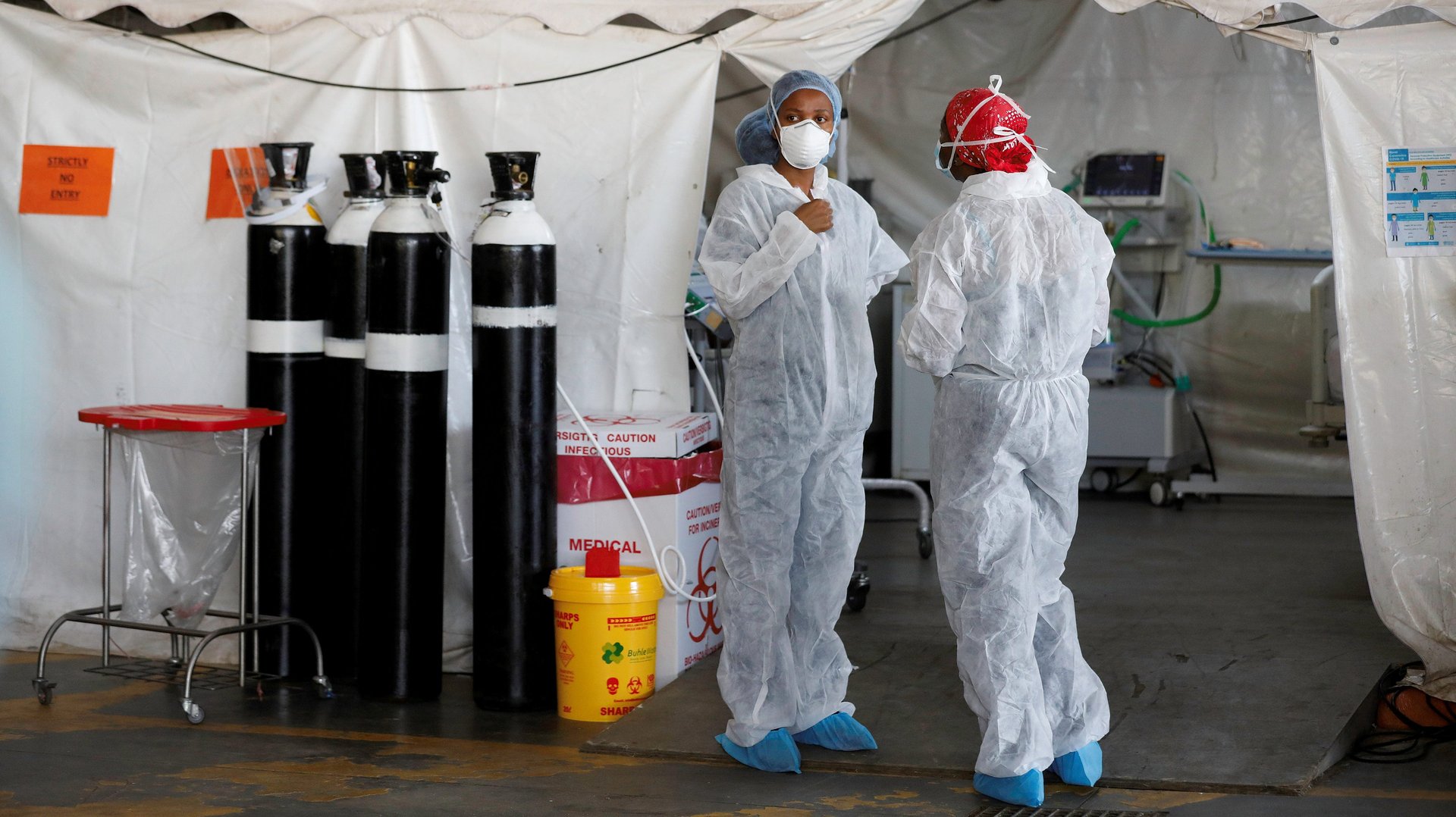South Africa’s scientists monitor new Covid-19 variant as the pandemic evolves
A new highly mutated variant of the Covid-19 virus has been identified in South Africa as the country continues to battle high infections and death rates from the pandemic. Due to the fast evolving nature of the pandemic, this new variant from South Africa—the continent’s worst hit country with over 2.8 million cases—poses new challenges to regional efforts to contain the pandemic.


A new highly mutated variant of the Covid-19 virus has been identified in South Africa as the country continues to battle high infections and death rates from the pandemic. Due to the fast evolving nature of the pandemic, this new variant from South Africa—the continent’s worst hit country with over 2.8 million cases—poses new challenges to regional efforts to contain the pandemic.
Scientists say the newly identified C.1.2 variant is already active in seven other countries across Africa, Asia and the Pacific regions. This comes at a time when the delta variant, first identified in India, has been causing a spike in infection rates under the third wave.
At least four African countries—Algeria, Kenya, Somalia, and Tunisia—have already “experienced a fourth wave” of Covid-19 cases, in addition to 38 others in Africa that have experienced a third wave, notes the African Centers for Disease Control and Prevention.
New and faster spreading variants are behind the continent’s surge in infections
According to the World Health Organisation, “new and faster spreading variants are fueling the continent’s surging and widespread third wave”. The delta variant had been “detected in 97% of samples sequenced in Uganda and 79% of samples sequenced in the Democratic Republic of the Congo”. Apart from the delta variant, two others, the alpha and beta variants had by last month been reported in 32 and 27 African countries respectively.
South African scientists are now closely monitoring the new C.1.2 variant which they fear could worsen cases and deaths and infection rates. This has come at a time when some African countries including neighboring Zimbabwe as well as Uganda and Rwanda had started to ease restrictions following what they believed was the end of a three month spike.
Data from the Africa CDC shows “an overall downward trend in the number of new daily cases being reported for the last four weeks” although the region now has a total of 7.7 million cases and ~195,000 deaths as of Aug. 28 2021.
According to South African scientists, the C.1.2 variant was first identified in May 2021 and evolved from C.1, “one of the lineages that dominated the first wave of SARS-CoV-2 infections” in South Africa. The C.1 variant was last detected in Jan. 2021.
The highly mutant C.1.2 variant, on the other hand, has since been detected across most of the provinces in South Africa, including the key commercial province of Gauteng under which the capital, Johannesburg falls.
As scientific studies continue to determine the full characteristics of the new C.1.2 variant, the scientists who identified it have highlighted concerns over its spike protein characteristics that are synonymous with “increased transmissibility and reduced neutralization sensitivity” noted in other earlier and worse variants.
There have been other mutants of Covid-19 elsewhere on the continent though, with the CDC noting that a different variant had emerged in Nigeria at the beginning of this year. There has however been no evidence to suggest that this variant “has any impact on disease severity or is contributing to increased transmission” of SARS-CoV-2 in Nigeria.
Sign up to the Quartz Africa Weekly Brief here for news and analysis on African business, tech, and innovation in your inbox.